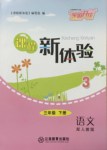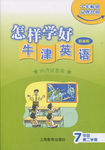题目内容
It was when I was attending high school that I first read Asimov’s stories. At the time, a few science fiction magazines began to introduce this author, and to translate a few pieces from his “Robot Series”. Of Asimov’s works, the one that left the deepest impression on me was Pebble in the Sky. This novel directly influenced my early science fiction writing. Asimov was one of the leading writers of western science fiction’s Golden Age, so although his writing may not have a direct influence on writers of today, his underlying (潜在的) influence on many levels is undeniable — the famous Three Laws of Robotics, and many classic writing techniques, for example. Asimov’s novels are marked by a fully integrated (完整的) logical system, and his stories are a pleasure to read. This is the reason his novels still attract readers today. Naturally, western science fiction has few people these days who follow Asimov’s creative methods. But still the majority of Chinese science fiction readers would rather read the classic works of Asimov. Compared with the “Robot Series”, Asimov’s “Foundation Series” is a little less well-known in China. In fact, the “Foundation Series” creates an entire world, even grander than that of the “Robot Series”; this science fiction had a direct influence on later western science fiction, the most famous example being Star Wars.
- 1.
We learn from the passage that the writer is probably a _________.
- A.science fiction writer
- B.science fiction publisher
- C.high school student
- D.science fiction fan
- A.
- 2.
The purpose of the passage is to _________.
- A.compare Asimov with other science fiction writers
- B.advise people to read Asimov’s stories
- C.give some comments on Asimov’s influence
- D.explain why Asimov is popular in China
- A.
- 3.
According to the passage, which of the following statements is TRUE?
- A.Asimov is criticized by today’s science fiction writers.
- B.Asimov still has many readers in China.
- C.Asimov wrote Star Wars in his later life.
- D.Asimov’s writing techniques are still widely used.
- A.
- 4.
In the writer’s opinion, Asimov’s “Foundation Series” _________.
- A.was not as successful as his “Robot Series”
- B.is better known to readers than his “Robot Series”
- C.was more logically organized than his “Robot Series”
- D.was written better than his “Robot Series” in some ways
- A.
文章介绍了Asimov以及他的作品的影响。
1.细节题。第五行This novel directly influenced my early science fiction writing.
2.主旨大意题。通读全文,可知这是对Asimov对科幻小说界得影响的评论。
3.细节题。倒数第七行But still the majority of Chinese science fiction readers would rather read the classic works of Asimov.
4.细节题。根据倒数第三行even grander than that of the “Robot Series”;

 芝麻开花课程新体验系列答案
芝麻开花课程新体验系列答案 怎样学好牛津英语系列答案
怎样学好牛津英语系列答案| 完型填空。 | ||||
| When I began teaching in a university, I was invited to a workshop for new professors. I had __1___ a long time learning what to teach, but not learning how to _2_ it . somehow , my university seemed to hope a weekend spent with experienced professors woule __3_ for that. My colleagu8es presented well-crafted lectures about the tools they used. I enjoyed their _4_, but do not remember a thing they said. At a coffee break during the lectures, finding myself _5_, I turned to a mathematics professor staning nearby. I asked him what his favorite teaching __6_ was. " a cup of coffee," he said " I talk too much and too fast in the classroom. Students sometimes have trouble _7_ me. So when I've said _8_ that I ant my students to think about, I would _9_ and take a sip of coffee. it lets what I 've just said sink in. When we were called to the next talk, he put down his cup and I _10_ there was not a trace of coffee in it. "My doctor _11_ me to stop drinking coffee," he explained." So I have always used a (n) _12__ cup" I decided to try his _13_ in my class. I took a cup of coffee with me to my next class. It helped . My pauses, as I _14_the coffee, not only gave my students _15_ to think about what I had said, but gave me time to think about what I was going to say next. I began to use my _16_ to look around the room to see how my students were reacting to what I had just said. Whe I saw their _17_ wander, I tried to bring them back. When I saw them puzzled over some concept that I thought I had _18_ , I gave another example. My __19_ became less organized and less brilliant, but my students seemed to _20_ me better. | ||||
|
| 完形填空。 | |||||||||
|
Professor Green, known to the world as a scientist, is not only absent-minded but short-sighted as well. His mind is always busy __1__scientific problems and seldom notices what is going on __2 him. | |||||||||
| ( )1.A. fish ( )2.A. there ( )3.A. more ( )4.A. happened ( )5A. on ( )6.A. swimmer ( )7.A. threw ( )8.A. deep ( )9.A. but ( )10.A. pushing ( )11.A. place ( )12.A. seeing ( )13.A. decided ( )14.A. while ( )15.A. turned ( )16.A. nervous ( )17.A. wrapped ( )18.A. save ( )19.A. on ( )20.A. boat |
|
|
| ||||||